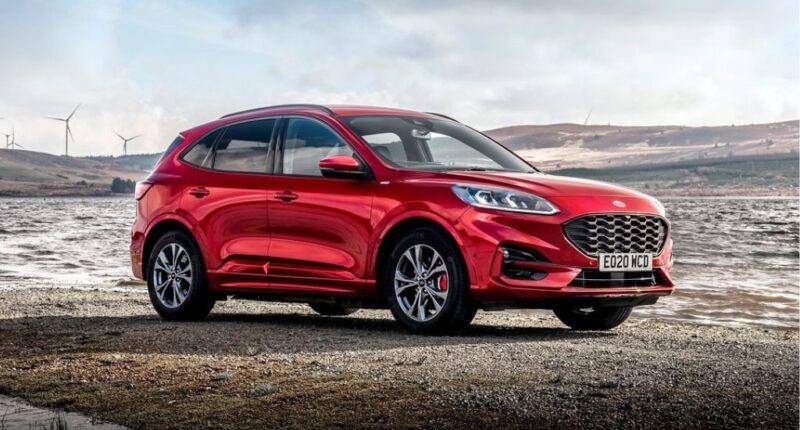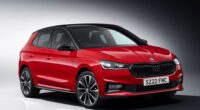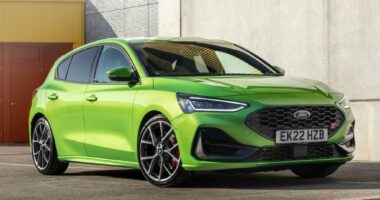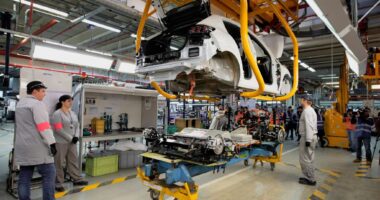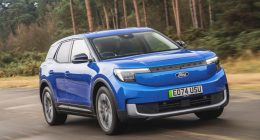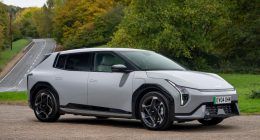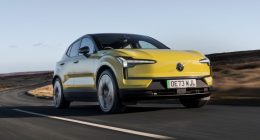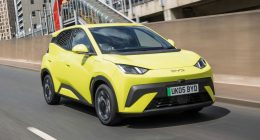The new car market’s positive start to 2022 continued into February as demand for fresh metal rose by 15%, the Society of Motor Manufacturers and Traders (SMMT) has said.
A total of 58,994 cars were registered in the UK last month, the latest set of industry figures reveal – a rise of 7,682 units compared to the same period in 2021.
Supply of the latest models was high in Northern Ireland as well; 2,713 cars rolled off local dealership forecourts meaning ,874 deals have so far been agreed this year – a 38% year-on-year jump.
Ford occupied two of the top-three best-selling model places locally, with the Kuga ending February on 88 sales and the Puma on 78. Sandwiched between them on 84 was the Hyundai Kona crossover. That performance allowed the Puma to reduce the year-to-date deficit to the Kona, which now stands at just five – 160 to 155.
Once again, the interest for electrified vehicles ensured sales remained bringht in February; battery electric cars took a 17.7% market share to reach 10,417 units.
Registrations of plug-in hybrids rose to 4,677 – a 7.9% share of the market. When combined with hybrid registrations (6,883), electrified vehicles accounted for more than a third of all new cars leaving dealerships in February.
Mike Hawes – the Chief Executive of the SMMT – has warned that these recent gains could potentially be lost as the start of the 2022/23 financial year heralds the end of the Electric Vehicle Homecharge Scheme (EVHS).
EVHS has provided important funding for homeowners to install their own chargepoint and the SMMT is calling for its extension – as well as its business counterpart, the Workplace Charging Scheme – beyond 2025 to ensure EV uptake remains on track to meet Government’s net zero deadlines.
“Consumers are switching to EVs in ever-increasing numbers. More than ever, infrastructure investment needs to accelerate to match this growth,” said Hawes.
“Government must use its upcoming Spring Statement to enable this transition, continuing support for home and workplace charging, boosting public chargepoint rollout to tackle charging anxiety and, given the massive increase in energy prices, reducing VAT on public charging points.
“This will energise both consumer and business confidence and accelerate our switch to zero emission mobility,” he added.
